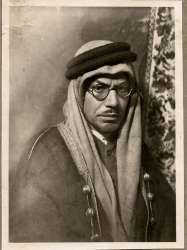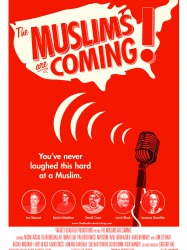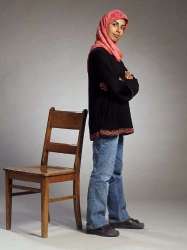Les films ayant le thème "Religion musulmane", triés par recette

The Love We Make (2011)
, 1h31Origine Etats-Unis
Genres Documentaire, Musical
Thèmes Les attentats du 11 septembre 2001, La musique, Religion, Le terrorisme, Transport, Aviation, Documentaire sur le droit, Documentaire sur la guerre, Documentaire historique, Documentaire sur la musique, Documentaire sur la politique, Documentaire sur la religion, Documentaire sur les technologies, Documentaire sur le terrorisme, Documentaire sur les villes, Musique, Politique, Religion musulmane, Film catastrophe, Film de catastrophe aérienne, Détournement d'avion
Acteurs Paul McCartney, David Bowie, Jim Carrey, Harvey Weinstein, Leonardo DiCaprio, Jimmy Fallon

Hotel Ground Zero (2009)
, 45minutesOrigine Etats-Unis
Genres Documentaire
Thèmes Les attentats du 11 septembre 2001, Religion, Le terrorisme, Transport, Aviation, Documentaire sur le droit, Documentaire sur la guerre, Documentaire historique, Documentaire sur la politique, Documentaire sur la religion, Documentaire sur les technologies, Documentaire sur le terrorisme, Politique, Religion musulmane, Film catastrophe, Film de catastrophe aérienne, Détournement d'avion

Inside 9/11 (2005)
, 4h15Origine Etats-Unis
Genres Documentaire
Thèmes Les attentats du 11 septembre 2001, Religion, Le terrorisme, Transport, Aviation, Documentaire sur le droit, Documentaire sur la guerre, Documentaire historique, Documentaire sur la politique, Documentaire sur la religion, Documentaire sur les technologies, Documentaire sur le terrorisme, Politique, Religion musulmane, Film catastrophe, Film de catastrophe aérienne, Détournement d'avion
Acteurs Russell Crowe

Veiled Ambition (2006)
, 26minutesThèmes Religion, Documentaire sur le monde des affaires, Documentaire sur une personnalité, Documentaire sur la religion, Religion musulmane

New Muslim Cool (2009)
, 1h23Origine Etats-Unis
Genres Documentaire
Thèmes La musique, Religion, Documentaire sur la musique, Documentaire sur la religion, Le hip-hop, Religion musulmane
The Film opens on the city of Pittsburgh where Hamza Perez is seen walking through the streets while narrating about his two recurring life prophecies that would come to him in dreams. One of his dreams was experiencing death at the age of 21, the second was him being in jail. Later he reveals both prophecies had come true. Hamza explains that at the age of 21 he became a Muslim, therefore he experienced a death of all his past doings. According to Hamza, one day while he was on the street smoking marijuana, a sheikh approached him to talk about Islam and that is when he knew things were going to change.

Losing Our Sons (2012)
Genres Documentaire
Thèmes Religion, Documentaire sur la religion, Religion musulmane
Two fathers have lost their sons to a radical Islamist movement whose growth is enabled by naïve and misguided political correctness, willful ignorance, and simple cowardice. Carlos Bledsoe, born and raised in an African American Baptist family, firebombed a rabbi's house and then killed Pvt. Andy Long outside an Army recruiting office in Little Rock, Arkansas. Carlos becomes a jihadist through his connections to radical mosques and Imams in Nashville, as part of a problem that is being ignored—or facilitated—by local civic and religious leaders and the media; whose politically correct views blind Americans to a truth that few dare engage.

Qu'Allah bénisse la France (2014)
, 1h35Origine France
Genres Drame, Biographie, Comédie dramatique
Thèmes La banlieue française, Danse, L'immigration, La musique, Religion, La précarité, Le hip-hop, Religion musulmane
Acteurs Marc Zinga, Gianni Giardinelli, Sabrina Ouazani, Karim Belkhadra, Mireille Perrier
Film adapté du roman autobiographique homonyme d'Abd Al Malik, Qu'Allah bénisse la France raconte le parcours de Régis, noir, enfant d'immigrés, surdoué, élevé par sa mère catholique avec ses deux frères, dans la cité du Neuhof à Strasbourg. Entre délinquance, rap et islam, il va découvrir l'amour et trouver sa voie grâce à la volonté de réussir et d'avoir un avenir meilleur.

Islam: The Untold Story (2012)
, 1h14Genres Documentaire
Thèmes Religion, Documentaire sur la religion, Religion musulmane
Un historien, Tom Holland, se penche sur les origines de l'Islam et questionne sur son histoire et son authenticité.
 , 1h32
, 1h32Thèmes Religion, Documentaire sur la religion, Religion musulmane
In the early 1920s Leopold Weiss, a Jew born in Lemberg, traveled to the Middle East. The desert fascinated him, and Islam became his new spiritual home. He left his Jewish roots behind, converted to Islam and changed his name to Muhammad Asad. He became one of the most important Muslims of the 20th century, first as an adviser at the royal court of Saudi Arabia, and later translating the Quran into English. Asad also played an important role in the creation of Pakistan and served as its envoy to the United Nations. The director follows his fading footsteps, leading from the Arabian desert to Ground Zero. He finds a man who was not looking for adventures but rather wanted to act as a mediator between East and West. “A Road To Mecca” takes this opportunity to deal with a heated debate which is currently becoming more and more important.

The Muslims Are Coming! (2013)
, 1h21Réalisé par Negin Farsad
Origine Etats-Unis
Genres Comédie, Documentaire
Thèmes Religion, Documentaire sur une personnalité, Documentaire sur la religion, Religion musulmane
Acteurs Lewis Black, David Cross, Negin Farsad, Janeane Garofalo, Aron Kader, Aasif Mandvi
The film opens with a montage of television and radio clips of comments from figures such as Frank Gaffney, Herman Cain, Ann Coulter, Bryan Fischer, Pat Robertson, Glenn Beck, Bill O'Reilly, Bill Maher, and Donald Trump expressing fear of Islam, or mistrust of Muslims.

Hijab - Mulheres de véu (2013)
, 1h18Origine Bresil
Genres Documentaire
Thèmes Religion, Documentaire sur une personnalité, Documentaire sur la religion, Religion musulmane
Patricia, Zahreen, Jamile, Maria, Jamila and Marcela are cariocas women who adopted Islam as a religion and began to wear the hijab, a traditional veil that covers the hair of Muslim women. The film dialogues with these women and shows the consequences of this religious option in their relationship with their families, at school and work.

Displaced (2010)
Réalisé par Idil Ibrahim
Origine Etats-Unis
Thèmes Religion, Le terrorisme, Documentaire sur le droit, Documentaire sur la guerre, Documentaire historique, Documentaire sur la politique, Documentaire sur la religion, Documentaire sur le terrorisme, Politique, Religion musulmane

Me and the Mosque (2004)
Réalisé par Zarqa Nawaz
Thèmes Religion, Documentaire sur la religion, Religion musulmane

Thèmes Les attentats du 11 septembre 2001, Religion, Le terrorisme, Transport, Aviation, Documentaire sur le droit, Documentaire sur la guerre, Documentaire historique, Documentaire sur la politique, Documentaire sur la religion, Documentaire sur les technologies, Documentaire sur le terrorisme, Politique, Religion musulmane, Représentation de Jésus Christ

16 Acres (2012)
Genres Documentaire
Thèmes Les attentats du 11 septembre 2001, Religion, Le terrorisme, Transport, Aviation, Documentaire sur le droit, Documentaire sur la guerre, Documentaire historique, Documentaire sur la politique, Documentaire sur la religion, Documentaire sur les technologies, Documentaire sur le terrorisme, Politique, Religion musulmane, Film catastrophe, Film de catastrophe aérienne, Détournement d'avion
 Connexion
Connexion